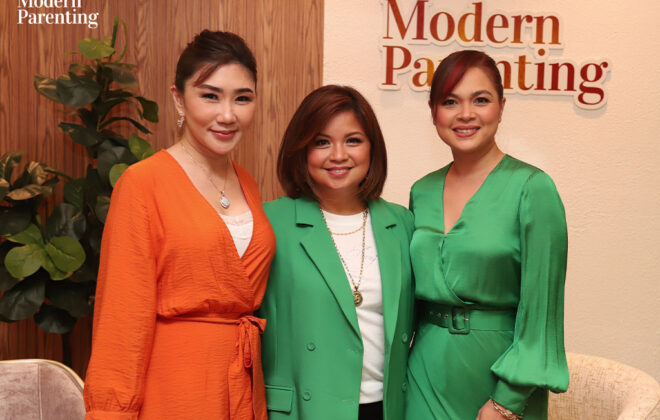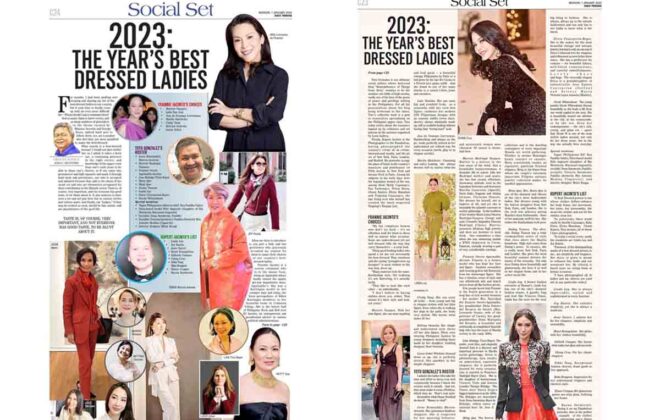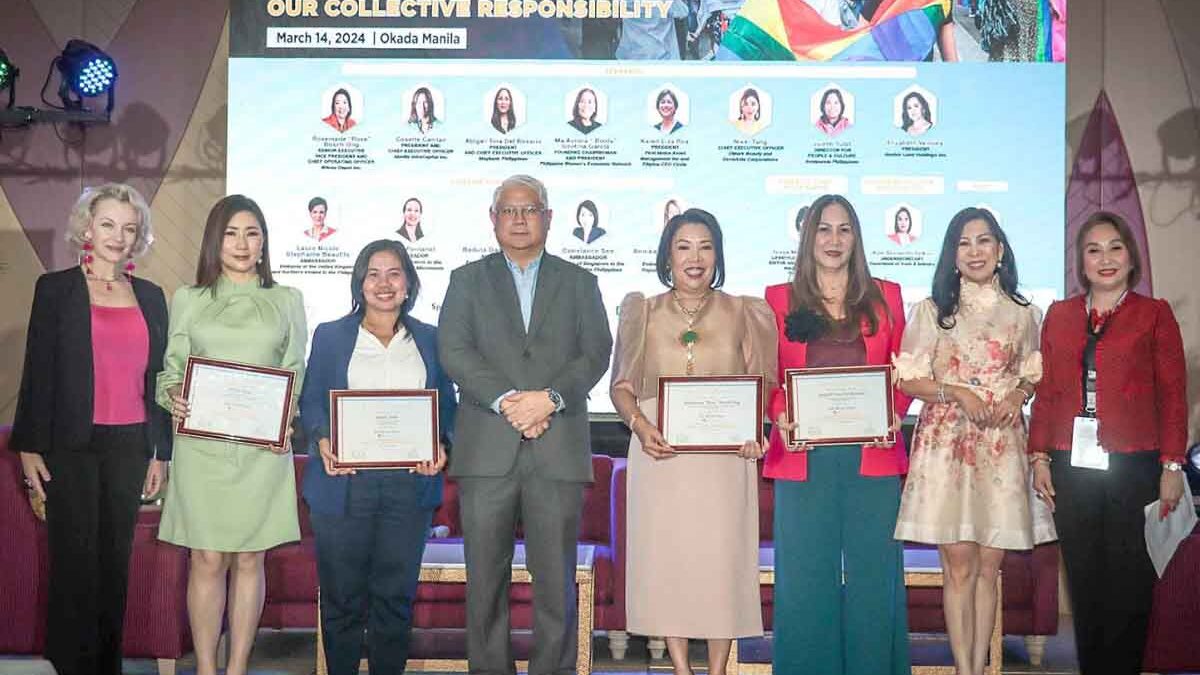
Building A Gender-Inclusive Society: Lessons from The Manila Times’ 2024 Women’s Circle Forum
Beautypreneur PH | Building A Gender-Inclusive Society: Lessons from The Manila Times’ 2024 Women’s Circle Forum | Manila Times – Societies are complex webs of relationships, interactions, and institutions that influence and shape humankind’s beliefs and opportunities. However, despite triumphant efforts in history, persistent problems of inequality remain. These interconnected elements should be actively and, more importantly, collectively addressed from generation to generation to ensure lasting progress.
It is not merely enough to tackle these issues in isolation or sporadically; instead, there must be a sustained and concerted effort across communities, cultures, and periods to address different needs and situations as they arise.
This was the emerging message at The Manila Times’ 2024 International Women’s Month commemoration via its annual Women’s Circle Forum. Thanks to the insights of a roster of highly successful women entrepreneurs, CEOs, diplomats, and others who spoke to an almost all-female crowd that filled the Grand Ballroom of Okada Manila on March 14.
The speakers and panelists not only highlighted the progress made in achieving a better society for women but also emphasized the ongoing and collective effort needed to build a truly gender-inclusive society.
After all, they agreed that gender equality isn’t just a cause for a specific group; it’s a shared responsibility that requires the active participation of every member of society. And only through continuous, collective action, they resoundingly underscored, can the world effectively dismantle systemic barriers and foster a more equitable and inclusive society for all.
Today, The Sunday Times Magazine shares empowering snippets from keynote addresses of the “Inspiring Inclusivity: Our Collective Responsibility” forum.
Cosette Canilao
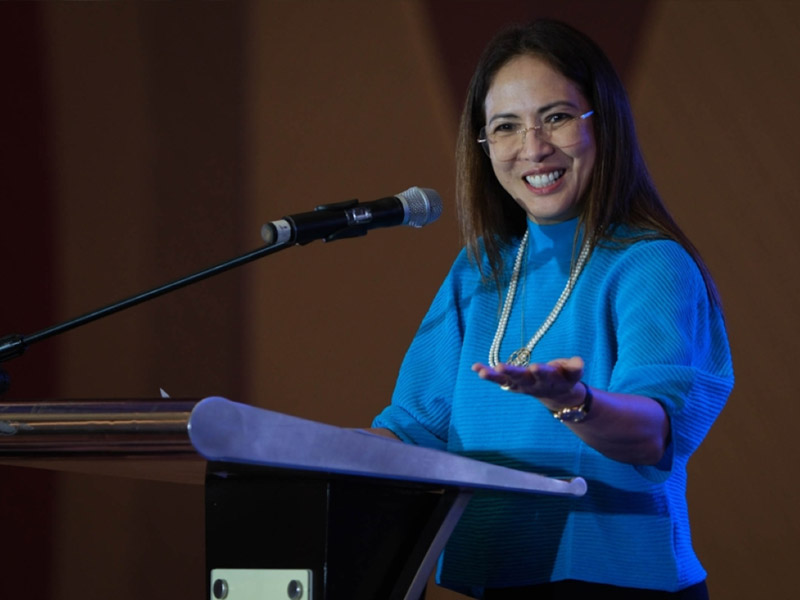
Cosette Canilao is the president and chief executive officer (CEO) of Aboitiz InfraCapital, the infrastructure arm of the Aboitiz Group. She has over 20 years of experience in various sectors such as public-private partnerships, crisis management and investment and corporate banking.
Despite her extensive experience, this seasoned leader encountered familiar struggles that many women in the workforce face, such as not being taken seriously. Her ideas were frequently dismissed, trivialized, disregarded, or undermined.
Thankfully, she had solid female mentors — and a few male ones too — who offered valuable insights to overcome this challenge. She learned how to assert herself and later on, rose through the ranks.
From this experience, she was inspired to fight for women’s rights in the workplace.
“Not all women have the same privilege or opportunities to be taken under the wings of great women leaders and allies. Thus, it is essential that we actively work to dismantle the systemic barrier that hinders women’s advances in the corporate world,” Canilao said.
One of her active ways to achieve this is to adopt a leadership style that is based on openness and accountability. In her office, debate is not only encouraged but embraced as a means of driving innovation and progress.
“We are working tirelessly to foster a culture of inclusivity. This involves creating spaces where voices are heard and truly valued. This entails providing mentorship, professional development and advancement opportunities regardless of gender identity or background.”
Canilao called on other business leaders to actively promote diverse initiatives such as initiating training programs in unconscious bias and gender sensitivity and offering mentorship and sponsorship programs.
“We must perpetuate supportive environments where everyone is given a fair chance to succeed and reach their full potential. Together, we have the power to build a more inclusive society, one where diversity is celebrated and everyone’s contributions are truly valued,” the executive concluded.
Karen Roa
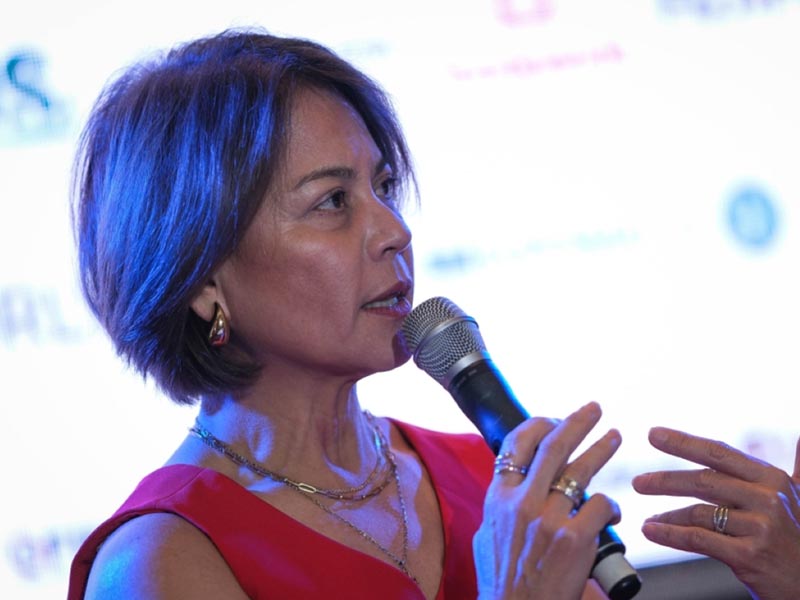
Karen Roa has over 25 years of experience in the financial services sector both domestic and international. She is currently the president of First Metro Asset Management Inc (FAMI), a subsidiary of the Metrobank Group, and president of Filipina CEO Circle Inc., a female network of successful career women who rose from the ranks to reach top positions in their respective companies.
In her address at The Manila Times’ Women’s forum, Roa highlighted 2018 data that showed female to male college student population.
In that year, there were 1.4 million female college students compared to 1.2 million male students, indicating a 20 percent gap. Most females pursued business administration courses, while males leaned towards information technology courses.
Despite the significant number of female business administration students and graduates, only 28 percent of executives in the Philippines are female. Additionally, among over 300 publicly listed companies in the country, only eight percent are led by women.
“This trend reflects a decline in women’s representation in executive roles, despite their large presence in the academic field.”
Roa attributes this disparity to societal expectations of women balancing corporate and domestic responsibilities, drawing from her journey as a student and now as the president of First Metro Asset Management Inc.
In pursuit of greater opportunities, Roa worked during the day and took her Masters of Business Administration at night. It was also during this time that she became pregnant with her first child.
She continued her studies despite being a mother because she believed that children should not be a hindrance to her dreams.
In managing her family and career, Roa set boundaries such as not taking any work-related calls on weekends and reminding her children that they should not ask for school supplies the following day if it’s past 5 p.m.
“I, too, am a victim or a victor — depending on how you want to see it — of the social bias of our culture where the mother is ultimately responsible for child rearing and managing all household affairs, but I never thought I had to give up one for the other.”
Roa said the path in fighting social bias against women is done in three ways.
First is to educate and call out non-inclusive behavior. This entails creating safe spaces for women to speak up and be heard.
The second is to take an enabling approach to harmonizing work and home life. She said businesses must be more understanding and flexible about the challenges of domestic affairs and provide assistance and support for them.
Lastly, workplaces need to provide development opportunities and mentorship for women in the workplace.
“Someone said [that] at various points in your career, [you] will be called to take a risk and you will find, as I have found, that those will be the times of your greatest opportunities,” Roa concluded.
Ma. Aurora Geotina-Garcia
Ma. Aurora “Boots” Geotina-Garcia has been a staunch advocate for gender and development. She is the founding chairman and president of the Philippine Women’s Economic Network (PhilWEN) and chairman of the governing council of PBWCE.
Her main advocacy focuses on diversity, equity and inclusion or DEI.
Geotina-Garcia emphasized that diversity goes beyond surface-level observations, extending into various dimensions that are often overlooked. She advocates for a safe and nurturing environment that allows for the exploration of these differences positively.
Then, explaining the distinction between equity and equality, she noted that equity involves fair treatment tailored to individual needs, unlike equality, which assumes uniform treatment for everyone.
Finally, she defined inclusion as the seamless integration of contributions, presence, and respect within an environment.
“Diversity is the mix and inclusion is getting the mix to work well together,” she noted.
In the context of the workplace, Geotina-Garcia stresses the significance of inclusion for employee retention.
“It is when employees feel that their ideas, presence and contributions are truly valued and taken seriously. This suggests a feeling [of] being part of an organization.”
Fostering inclusion is a primary goal of her organization, PhilWEN. Established in 2017, it is a coalition of women’s business organizations in fields such as women in the marketplace, workplace, communities and rural areas.
Its vision is to be the catalyst of change for women and to engage business leaders to incorporate DEI into their workplaces.
“Inclusivity is a fundamental principle that should shape our society, creating spaces where everyone feels valued, respected and heard. By fostering inclusivity, we can unlock potential. We have the collective responsibility to promote and advocate inclusivity. It is not just a box to check, but rather a commitment that amplifies unheard voices,” she concluded.
Elizabeth Ventura
Elizabeth Ventura is the current president of Acnhor Land Holdings Inc., the country’s leading fully integrated real estate developer.
While the construction industry is known to be male-dominated, this did not stop Ventura to venture forward and conquer her spot in the industry in her own special, charming way.
She highlighted the unique way in which women contribute to the workforce being the heart of business and carrying empathy, creativity and innovation.
“At present, the real estate industry has become an empowerment landscape for women as female participation has notably increased. Women are making significant strides in the industry not just in the domestic, but also in the international scene,” Ventura proudly noted.
“Our role is crucial because real estate is not just about buying and selling properties. It’s about shaping communities, empowering individuals and fostering growth. Women in this field are not mere participants, we are catalysts for change,” she added.
She said women’s innate empathy and keen attention to detail make them important movers of the industry, and that they should not be afraid to prepare and assert themselves to bigger roles and take challenges head-on.
Women also play an important role in communication. They anticipate needs and trends that others may overlook.
Ultimately, what sets women apart, according to Ventura, is their ability to not conform to the traditional norms of power. They wield power not through force, but through their charm.
“We recognize our femininity is not a weakness to overcome, but a strength to be embraced. We are empowered to inspire, not to dominate. Just always remember to leverage your strength, stay true to yourself and continue to pursue growth and advancement.”
As the dynamics continue to evolve, Ventura hopes that women will continue to rise and shine not just in real estate, but the entire business sector. This shift will also be a celebration of diversity and innovation.
“Let’s seize this moment and embark on our journey to success, inspired by trailblazing women who paved the way,” she concluded.
Rosemarie Bosch-Ong
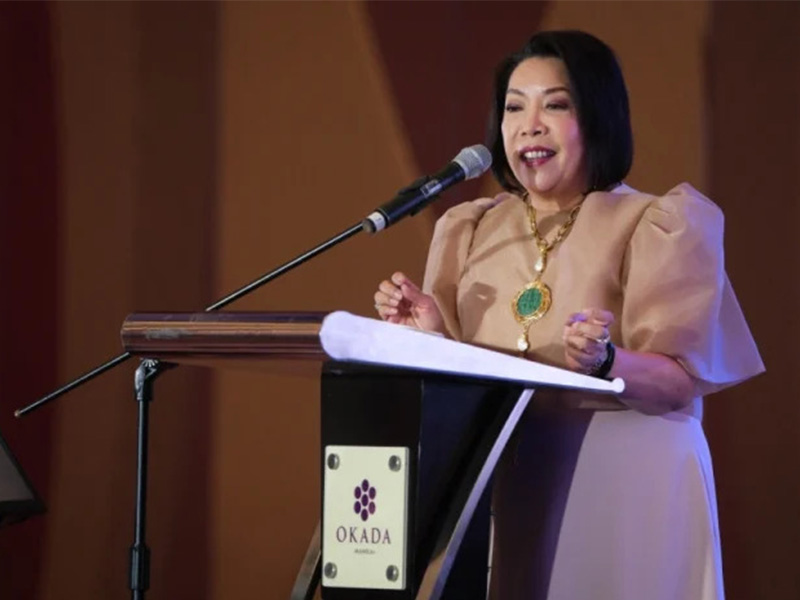
Rosemarie Bosch-Ong is the Senior Executive Vice President of Wilcon Depot. As a prominent leader of the popular construction and home improvement retailer, Bosch-Ong ensures that she is embracing inclusive leadership and celebrating women all around.
Bosch-Ong proudly noted how even before the word “inclusivity” became a buzzword, Wilcon Depot have been treating and providing everyone in their company with equal opportunities. For one, the company has 32 female operations heads from their 92-strong branches across the nation.
Second, the company fosters collaboration wherein traditional gender norms and stereotypes are challenged and different people engage in debates with respect and a goal in mind.
Lastly, the company is aware of the gender biases embedded in the Filipino culture. To address this, Wilcon set clear standards and quantitative measures in evaluating its performance to eliminate bias.
As she has been successfully running an inclusive company, Bosch-Ong continued her talk with steps women can also take to lead with inclusivity.
The first is to walk the talk.
“Authentic and inclusive leaders should know how to walk their talk. The best example of being a leader is being a model. [You] can voice out something, but again you have to encourage authenticity and, of course, with respect. That’s very important with any relationship.”
The second is for women to celebrate their achievements, no matter how small they may be.
Lastly, Bosch-Ong advised women to learn new things.
“I wouldn’t be where I am not if I haven’t committed myself to self-improvement. I believe that I have many to continually learn and grow, and I am driven to be well-grounded, but also to be mentally and skillfully flexible to better deal with.”
To further encourage women in the audience and beyond, Bosch-Ong has this piece of advice: “Don’t be afraid to step out of your comfort zone. Remember, growth starts in the most uncomfortable situations. Look for someone who can help you stay on track, and even develop yourself. The world can sometimes be hard on women, so don’t be hard on yourself. God made every one of us limitless, we are just the ones who limit ourselves by listening to the lies the world says about women.”
Nikki Tang
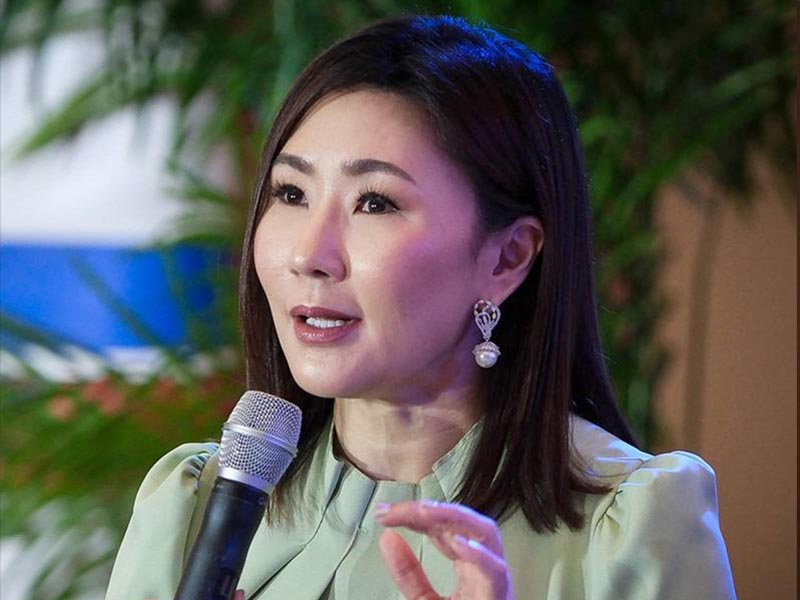
Nikki Tang is the CEO of DermAsia Corp. and Dmark Beauty.
For Tang, inclusivity is not merely policies placed on paper, but it has a deeper foundation by treating every person as a family and guided by the principles she ascribed as “H.E.A.R.T”
In her talk, she delved deeper to share with the audience what these principles stand for.
Humility is the ability to accept that people can learn from each other by listening and learning to collaborate with the team. It is through giving value to each suggestion, as some ideas may turn out to be game changers.
“No matter our age or tenure, we each have insight that can lead to breakthroughs,” Tang said.
E is for empathy. It is the ability to connect beyond the surface and understand the stories of other people that shape their lives. It is the bridge that connects people, allowing them to understand to understand each and everyone’s journey
“We truly care about what happens beyond the office walls. It’s about creating a workspace where everyone feels supported and understood not just as employees, but as people with lives, dreams and sometimes, burdens.”
A is for appreciation. This pertains to the diverse perspectives that enrich the workplace. More than recognizing a person’s effort, it is about valuing and admiring the myriad of life experiences that walk through their doors.
“Through appreciation, novel ideas can create innovation and unity in the workplace.”
R is for respect. It is a fundamental thread that Tang said weaves her team together.
“Respect also entails taking a moment to appreciate everyone’s hard work and to foster a culture of contribution where every member is empowered and encouraged to speak up — regardless of position or tenure. We are not perfect, but we cautiously make an effort to make respect deeply ingrained in our interactions and situation.”
Finally, T is for trust. It is a force that creates a space where everyone can share ideas. “It is the thread that ties the entire team together and works as the cornerstone of the workplace.”
With all of these elements combined, Tang hopes to foster inclusivity not just at the doorstep of her company, but across oceans where it can touch lives in the corners of the world.
“Inclusivity is a practical blueprint for building a world where everyone feels seen, heard and valued. It’s about dismantling barriers not just in the walls of our offices, but in every community and in every industry,” Tang concluded.
Abigail Tina del Rosario and Judith Tubil
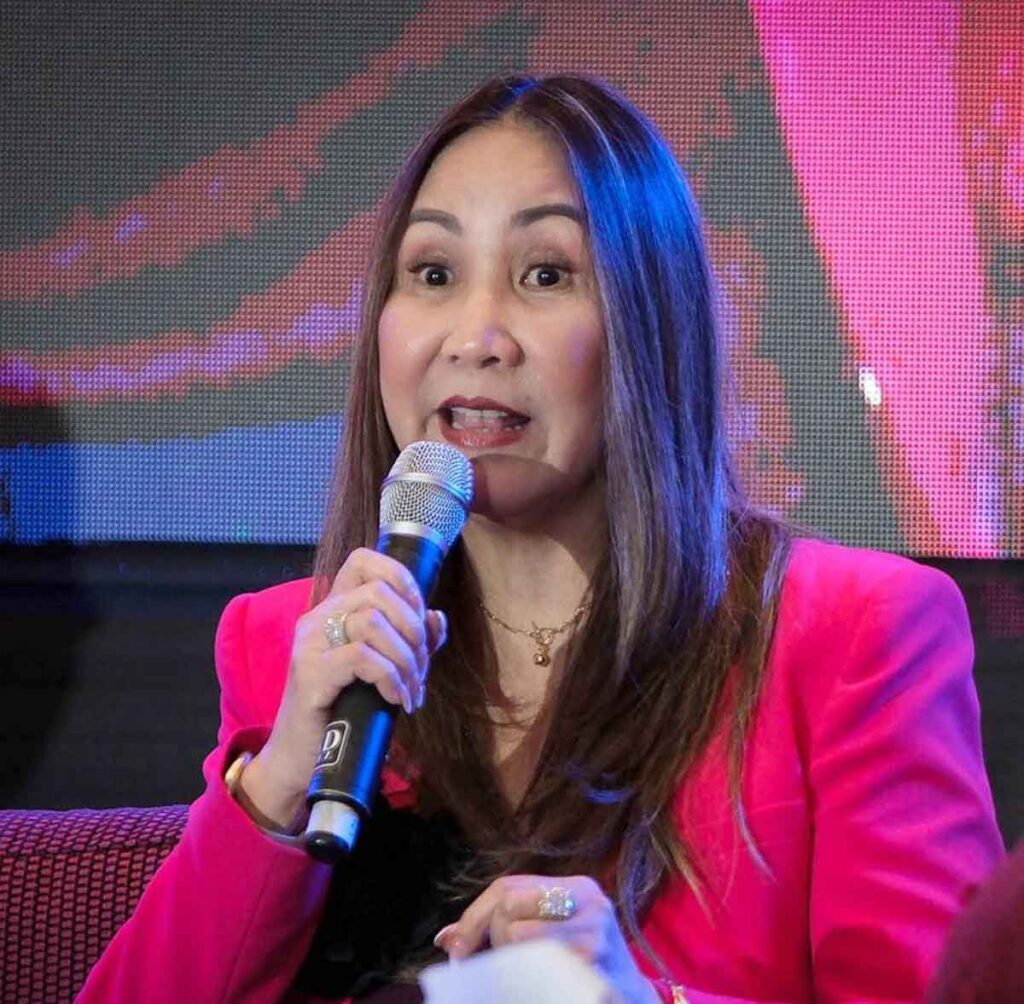
The forum also included Maybank Philippines President and CEO Abigail Tina del Rosario and Foodpanda People and Culture Director Judith Tubil.
While they did not take the podium for a keynote address, the executives joined the program’s business session and question and answer to share their take on this year’s theme.
Del Rosario highlighted how the banking industry is male-dominated with only four female CEOs out of the 43 commercial banks. As such, she takes pride that her company, Maybank, upholds gender equality. Proof of this is the 31 percent of senior management roles held by women in Maybank Philippines.
“We take it seriously when it comes to [DEI]. It’s not just DEI, for us. Besides diversity, equity and inclusion, we add B or belonging into the equation. That’s how we [are] at this point,” she says.
On the other hand, Foodpanda’s Tubil said the online food delivery platform strives to achieve empowerment by employing an equal population of women and men in their platform.
“Women are truly empowered, and we hope we can truly empower women,” Tubil ended.
Recent Posts
Categories
- Advocacy (48)
- Beauty and Science (101)
- Beauty Buzz (2)
- Entrepreneurship (68)
- Lifestyle and Travel (56)
- Parenting (16)
- Podcast (13)
- Press (122)
- Rotary Club Newsletters (13)
- TatlerTalks (3)
- Through My Virtual Screen (3)
- Two For the Road (23)
- Uncategorized (3)

